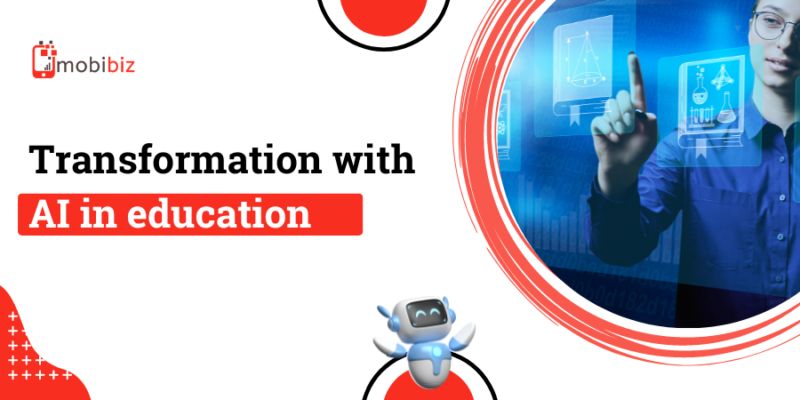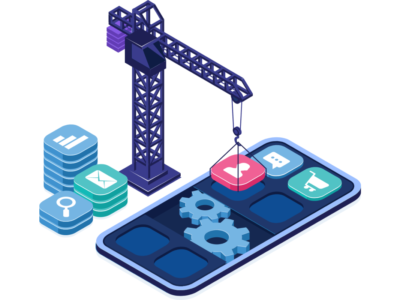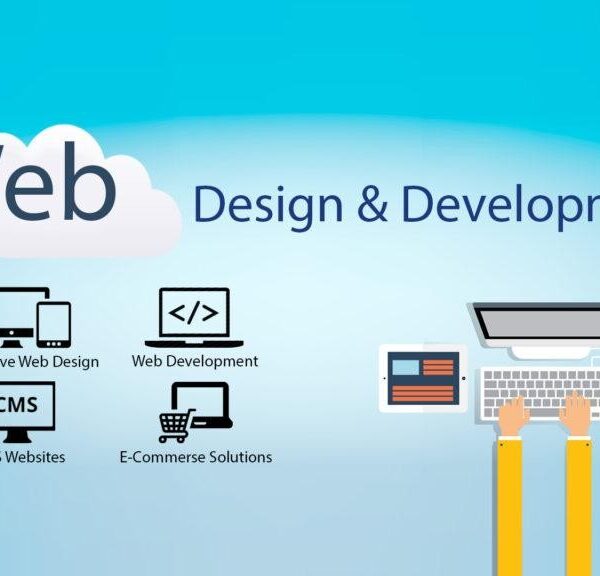
In 2024, artificial intelligence (AI) continues to revolutionize education, creating more personalized, efficient, and engaging learning experiences. From adaptive learning platforms to AI-driven administrative tools, the integration of AI in education is transforming how students learn and how educators teach. This blog explores the latest trends and innovations in AI in education, highlighting its impact and potential for the future.
Personalized Learning Experiences
One of the most significant impacts of AI in education is the ability to provide personalized learning experiences. AI-driven platforms can analyze students’ learning patterns, strengths, and weaknesses to tailor educational content to their needs.
Adaptive Learning Platforms
Adaptive learning platforms use AI algorithms to adjust the difficulty and type of content presented to students based on their performance. These platforms ensure that students are neither bored with too-easy tasks nor overwhelmed by overly challenging material. Examples include DreamBox and Knewton, which offer personalized math and reading programs that adapt in real-time to student progress.
Intelligent Tutoring Systems
Intelligent tutoring systems (ITS) provide one-on-one instruction and support, mimicking the personalized attention of a human tutor. These systems use AI to offer feedback, hints, and explanations, helping students understand complex concepts at their own pace. Carnegie Learning’s MATHia and Duolingo are notable ITS examples that have shown significant improvements in student learning outcomes.
Enhanced Administrative Efficiency
AI is not only transforming the classroom but also streamlining administrative tasks, allowing educators to focus more on teaching and less on paperwork.
Automated Grading and Feedback
AI-powered tools can grade assignments and provide instant feedback, saving teachers valuable time. These tools use natural language processing (NLP) to assess written work and provide constructive comments. Turnitin and Gradescope are popular platforms that use AI for grading essays, coding assignments, and even exams.
Predictive Analytics
Predictive analytics tools help educational institutions identify students at risk of falling behind or dropping out. By analyzing data such as attendance, grades, and engagement levels, AI can alert educators to intervene early. This proactive approach can significantly improve student retention and success rates.
AI-Enhanced Learning Content
The development of AI-generated content is another trend reshaping education. AI can create and curate educational materials, ensuring that content is up-to-date and aligned with curriculum standards.
Content Creation and Curation
AI tools can generate quizzes, flashcards, and even entire lesson plans tailored to specific learning objectives. Platforms like Quizlet and ScribeSense use AI to create and organize study materials, making it easier for educators to provide diverse and engaging content.
Virtual Labs and Simulations
AI-powered virtual labs and simulations offer hands-on learning experiences without the need for physical resources. These tools are particularly beneficial in STEM education, where students can conduct experiments and explore scientific concepts in a safe, controlled environment. Labster and PhET Interactive Simulations are leading providers of virtual labs that enhance experiential learning.
AI in Special Education
AI is making significant strides in special education, offering tailored support to students with diverse learning needs.
Assistive Technologies
AI-driven assistive technologies, such as speech-to-text and text-to-speech tools, help students with disabilities access educational content. Tools like Microsoft’s Immersive Reader and Google’s Live Transcribe provide real-time assistance, making learning more inclusive.
Customized Learning Plans
AI can help create individualized education plans (IEPs) by continuously monitoring student progress and adapting instruction accordingly. These plans ensure that students with special needs receive the appropriate support to achieve their educational goals.
Ethical Considerations and Challenges
While AI offers numerous benefits, it also raises ethical considerations and challenges that must be addressed.
Data Privacy and Security
The use of AI in education involves collecting and analyzing vast amounts of student data. Ensuring the privacy and security of this data is paramount. Educational institutions must implement robust data protection measures and comply with regulations such as the General Data Protection Regulation (GDPR) and the Family Educational Rights and Privacy Act (FERPA).
Algorithmic Bias
AI systems can inadvertently perpetuate biases present in the data they are trained on. It is crucial to develop and use AI tools that are transparent and fair, ensuring that all students receive equitable treatment. Ongoing research and development are needed to mitigate biases and enhance the fairness of AI applications in education.
The Future of AI in Education
Looking ahead, AI will continue to evolve and expand its role in education. Here are some future trends to watch for:
Lifelong Learning and Upskilling
As the job market continues to change rapidly, the need for lifelong learning and upskilling will grow. AI-powered platforms will play a crucial role in providing continuous education and training opportunities, helping individuals stay competitive in their careers.
Global Collaboration and Knowledge Sharing
AI will facilitate global collaboration and knowledge sharing by connecting educators, students, and researchers worldwide. AI-driven platforms will enable the exchange of ideas and resources, fostering a more interconnected and collaborative educational environment.
Augmented and Virtual Reality
The integration of AI with augmented reality (AR) and virtual reality (VR) technologies will create immersive learning experiences. These technologies will allow students to explore virtual environments, conduct virtual field trips, and engage with interactive simulations, enhancing their understanding of complex subjects.
Conclusion
AI is transforming education in profound ways, offering personalized learning experiences, enhancing administrative efficiency, and providing innovative educational content. As we move into 2024, the continued integration of AI in education promises to create a more engaging, inclusive, and effective learning environment. While challenges such as data privacy and algorithmic bias need to be addressed, the potential benefits of AI in education are immense. By embracing AI responsibly and ethically, we can unlock new possibilities and shape the future of education for the better.








